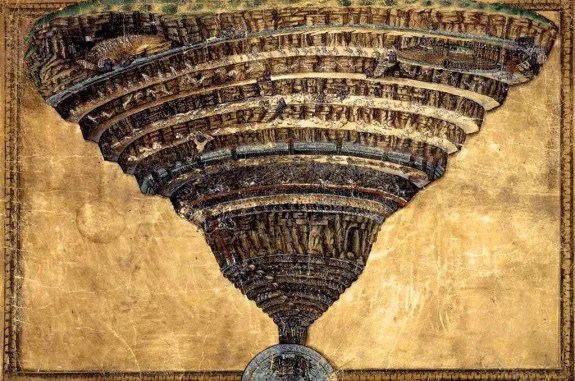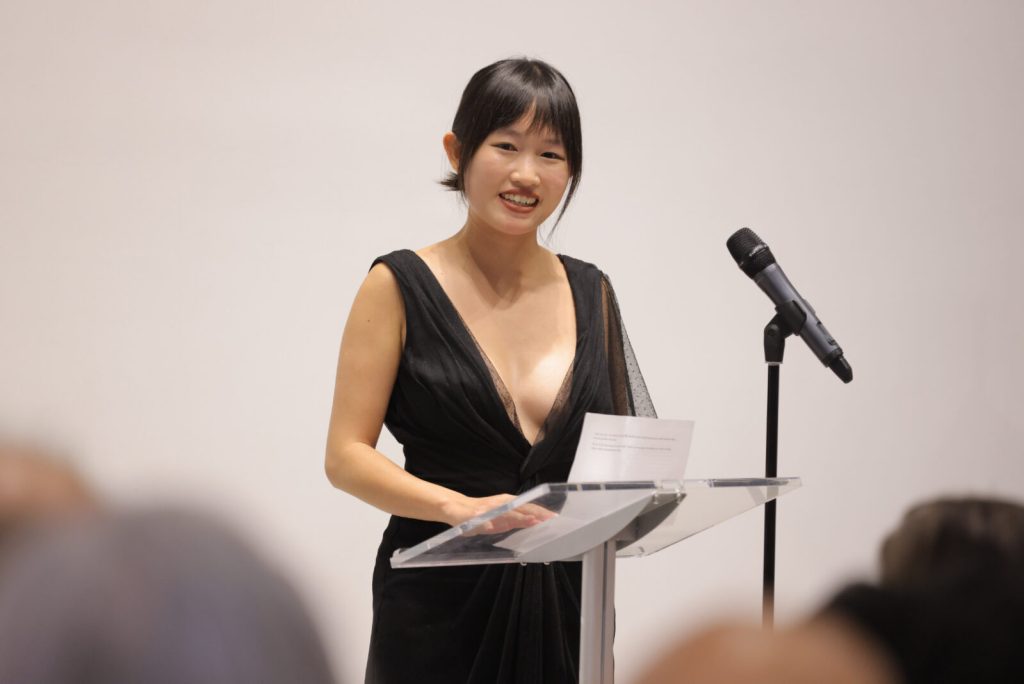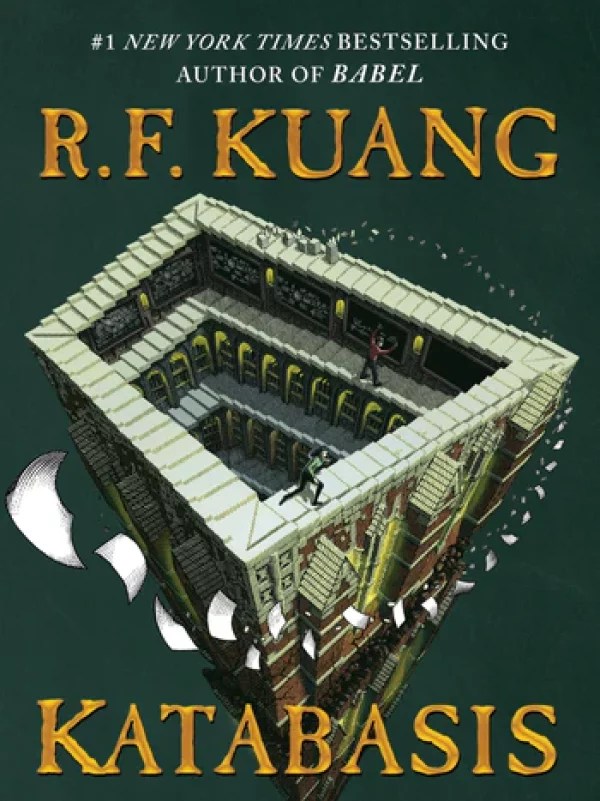If you accidentally killed your most admired professor, would you descend to the deepest level of Hell to bring them back? Katabasis (proper pronunciation is contested and often contextual), in its literary definition, is the story of a hero’s descent to the Underworld. R. F. Kuang’s sixth novel of the same name uses those familiar sources, Orpheus and Dante, and analytical philosophy, as the skeleton for this gory, academic fantasy.
“Katabasis” is, upon first glance, intimidating with its 541 pages, layers of academic context, and violence. Kuang used a large minority of those pages to explore not only Hell itself, but the motivations, addictions, and flaws that drive people into its depths. Extremely verbose, many readers kept a search engine close by to read further into the known paradoxes of philosophy analyzed.
Many familiar dark, academic novels focus on the former adjective, building a violent story and setting it on a campus. In “Katabasis,” Hell is literally a campus. Told through the perspective of two doctoral candidates studying analytical magick (the ‘k’ is included in this novel – Kuang is a linguist, after all) at Cambridge, one can excuse the often windy and rambling trains of thought main character Alice Law often leads us down.
 15th Century Italian artist, Botticelli, recreates Dante’s map of Hell on parchment.
15th Century Italian artist, Botticelli, recreates Dante’s map of Hell on parchment.
And what else would Hell appear as, for a graduate student, other than a campus? A library? A student center? Like any academic, Kuang starts this novel with questions: What is Hell like, and how do we get there? How do we traverse its nine levels and survive? The answer: you might not.
Told with vicious imagery and questionable morals, Alice and a fellow student have the displeasure of trying to work together. Alice, an obsessive and opaque disciple struggles with identity, guilt and self-worth while also striving for a place on a pedestal. Her co-lead, Peter Murdoch, represents a recurring archetype in all Kuang’s novels: the lean, brown-haired, dork who’s obsessively in love with the female main character.
At a panel promoting the new novel, Kuang said, “I think there’s a character whose soul appears in all the books as different characters. In the ‘Poppy War’ trilogy, it’s Kitay. In ‘Babel,’ it’s Robin. And in ‘Katabasis,’ it’s Peter. And all these characters are kind of gangly, nerd men who is a reincarnation of Hiccup from ‘How to Train Your Dragon’.”
Gabino Iglesius with NPR said, “R.F. Kuang’s novel ‘Yellowface‘ was fantastic. It was engaging, smart, and tackled big issues like race, intellectual property, honesty, revenge and cultural appropriation all while offering a scathing look at publishing…’Katabasis’, Kuang’s latest, is even better.”
 R.F. Kuang speaks at the Girls Write Now Awards 2024 at DVF Studio on Oct. 10, 2024 in New York City.
R.F. Kuang speaks at the Girls Write Now Awards 2024 at DVF Studio on Oct. 10, 2024 in New York City.
Readers of Kuang are used to the implementations of intense academia and Kuang’s personal history. Born in China, raised in Texas, Kuang holds a B.A. from Georgetown University, a Master’s of Philosophy in Chinese studies, a Master’s of Science in Contemporary Chinese studies, and currently attends Yale University as a PhD student in East Asian Languages and Literatures.
Unfortunately, the book hits a lull 200 pages in, leaving a frustrated reader to think, “Just get on with it already.” For those unopposed, there may be a chapter or two that could be skipped without losing any context at all. While the story starts in the middle of the action, exposition is sprinkled throughout at dramatic moments, often breaking away from dramatic scenes to build tension.
Kuang’s analysis of each of Dante’s nine levels of Hell can be the most interesting part of the story, but unfortunately only explored in the first few levels – Pride and Desire. The academic commentary on students’ personalities ends and never returns for the last seven levels.
While this book may have felt like a chore at times, it’s a window into the minds of highest academia, the deepest levels of Hell, and subconscious insecurities.
**Mavrie has been serving as editor for the ThunderWord since 2024. She is also the founding president of Highline’s Non-fiction Writers Circle.**
Related

